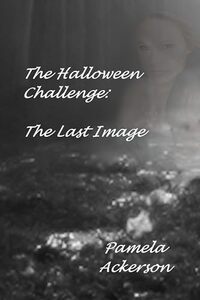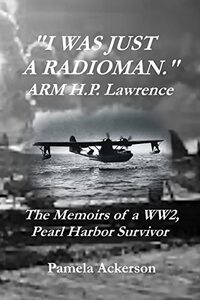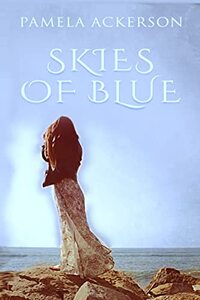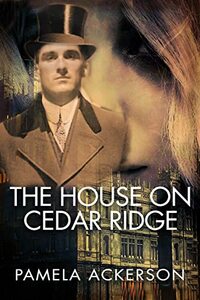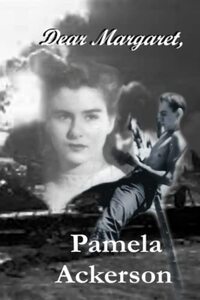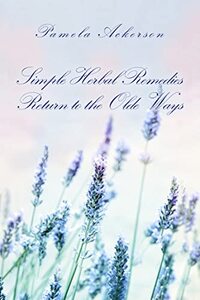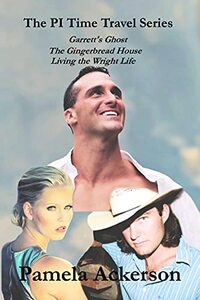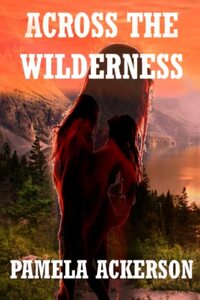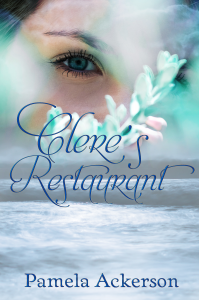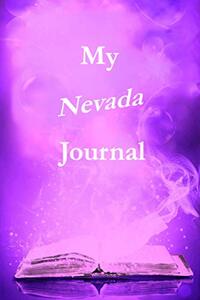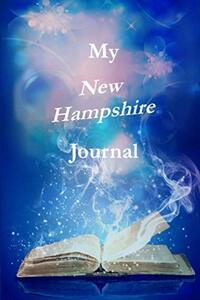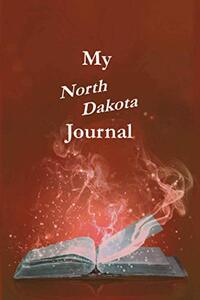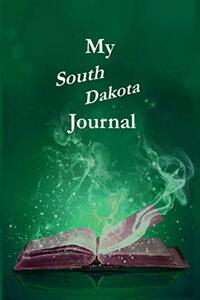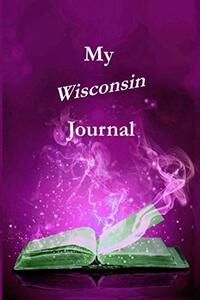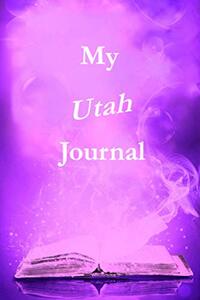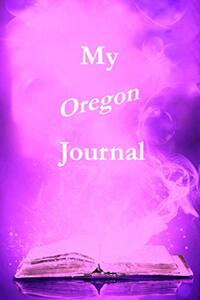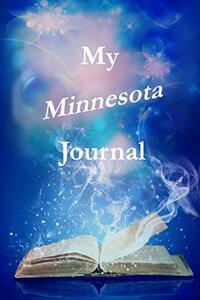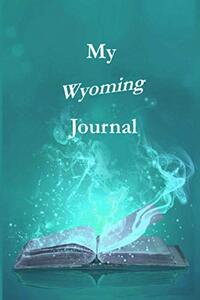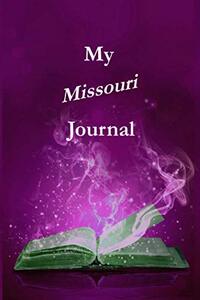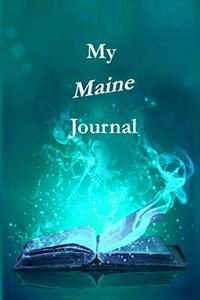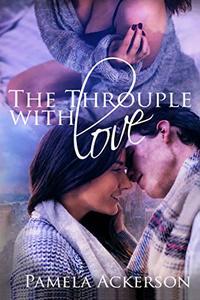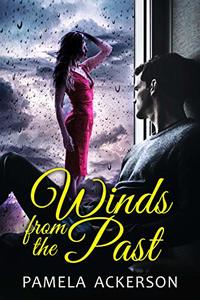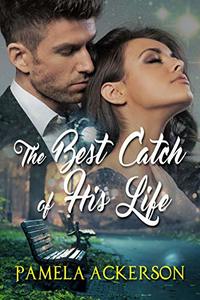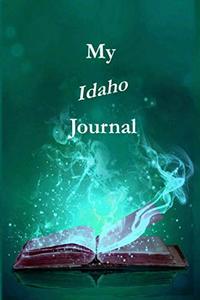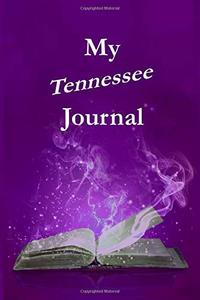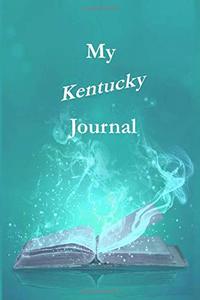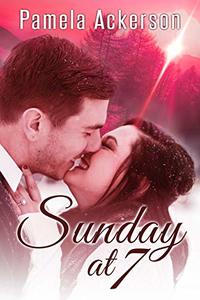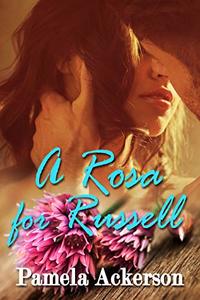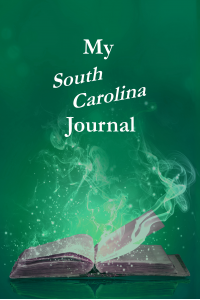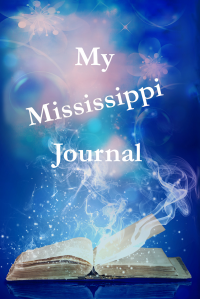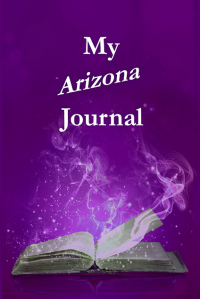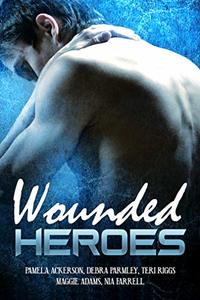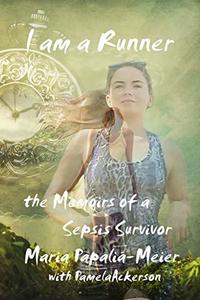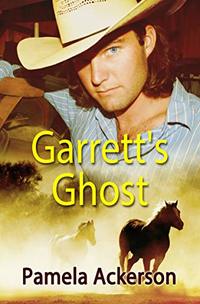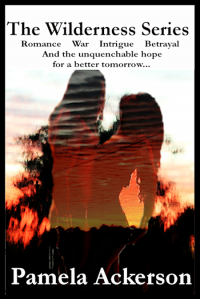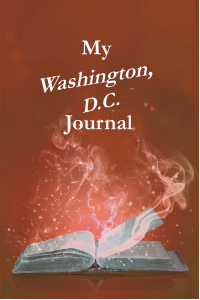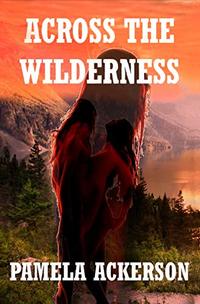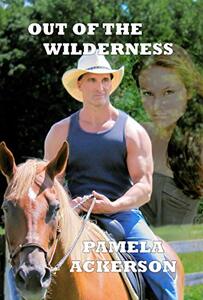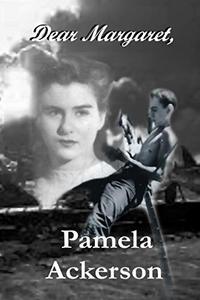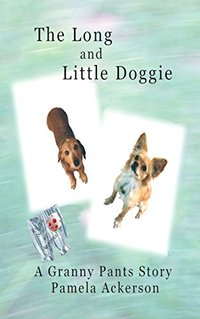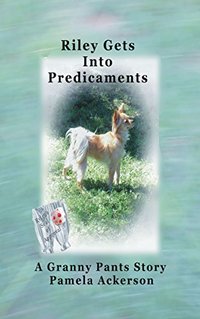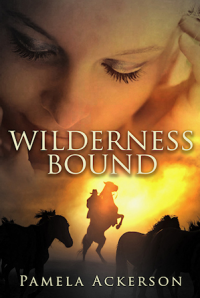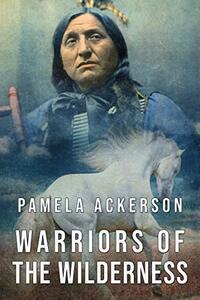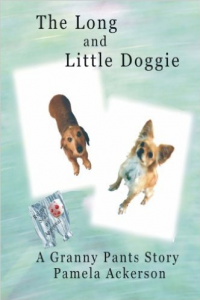Pamela Ackerson Interview Published on: 02, May 2018
 What are some of your favourite memories being raised in Newport, RI? How is life different for you now living in Coastal Florida? How has the move benefited you as an author?
What are some of your favourite memories being raised in Newport, RI? How is life different for you now living in Coastal Florida? How has the move benefited you as an author?
It was a different lifestyle on the Island living in Newport. The love of history is ingrained in our minds and in our childrens' minds from the moment we start to walk. The love of the ocean, the respect for our land and waters is a given, it's taught and passed down from generation to generation. When I was younger, I thought Rolls Royces were normal every day vehicles. Yes, that was a definite wake-up call. Moving to the South was a touch of a culture shock. People and attitudes are slightly different here. Sometimes, I think less tolerable of culture, ethic differences. However, I see a positive and definite change, that is happening in the southern states. I've always been an observer, seeing the differences to me was more obvious than someone who may not be an observer.
What was your goal going into child psychology in college? How has thing expanded your knowledge, regarding books and writing?I wanted to help people. I felt if I could help children before they became adults, it could possibly avoid years of anguish and help them live a more positive and productive life. Regarding books and writing. It's taught me to be more observant, seeing slight nuances that most people would not see.
What first sparked your interest in writing? What then made you wait so long before you decided to publish your work?I've always loved telling stories. I recall my mother telling me to make up some stories to entertain my brother and skyrocketed from there. When my high school English teacher placed one of my short stories into a contest, it was the push I needed. (I took first place in my age category for science fiction.) From that point my goal was to be a published author. I had about ten years where I didn't write. When time (and older children) allowed, I started writing again.
Among your various day jobs - working in restaurants, interior decorating, owning an advertising business and ballroom dancing studio, content editor for a publishing house, and real estate investments - which one was the most memorable? What is a really good story from any one of these jobs that you love to tell?Oh, there are a lot of good stories. The most memorable, the restaurant business and dance studio are tied. They're fuel and fodder for multiple personalities that tend to sneak into my stories. The advertising business has put me in an advantageous position of understanding how very important it is to market and advertise.
Do you think all these jobs as well as being an herbalist, has given you any kind of edge as a writer? How do you balance between your home life and work life?I think life experience has given me a great perspective for being a writer. I don't like the expression "life got in the way so I couldn't write" I think life is a major part of my writing. It's not in the way, it IS the way. Write about real life and you'll always grab your reader. Balancing home life and work life is always a challenge regardless of what you do for a living. Being an herbalist is a lifestyle choice. I prefer natural treatments, however, I don't reject modern medication.
Did you have any pets that inspired The Long and LIttle Doggie Series? Why did you choose to do this series, that too, one about dogs?The Granny Pants Series is based on true stories of rescue puppies. My dog is the long one, Tubby, who is a dachsund. The little doggie is Riley, also a rescue pet that belongs to my youngest daughter. I felt it was a great opportunity to tell people about rescue puppies who just needed good homes and weren't abused or anything like that. Just a nice opportunity for a parent to open a dialogue about rescue animals.
What do you think makes a really good and relatable character? Which of your characters resonates with you the most and why?Real characters have real feelings, desires, and fears. Using realistic attitudes and feelings help the reader relate to the fictional characters, whether it's them or someone they know. Jennifer, the main character in book five of the Wilderness series is probably the most realistic character I've written. She's a mess, her emotions, living with the loss of her father, friends, etc., and then reality hits and she wakes up and realizes that what she wants has been right in front of her the whole time. Yup, I know a lot of people like that. We all do.
Coming to your books like "I Was Just A Radioman" and "Dear Margaret", why do you think writing these books was so important to you? Why did you specifically choose their stories to tell and in what ways do you like to pay homage to these Pearl Harbour survivors?I'm extremely passionate about history, but Radioman and Dear Margaret, have a special place in my heart. Both of these books had me holding back strong emotions as I was writing and compiling them. I made a promise to Harry (Radioman), that I would tell his story. There's a saying that Pearl survivors repeat. "Remember Pearl Harbor--Keep America Alert." We, as Americans, as human beings, can never, ever allow hatred to reign again.
What spawned The Wilderness Series? Are you a great lover of Native American history? In what ways have these books opened new doors for you as an author?Like I said before, I find history fascinating. The Wilderness Series was actually started because of a recurring dream I'd been having. Originally, I was about the Cherokee but was forcing the story. I did some research and found that the mountains in my dreams were the Black Hills and the Wilderness story was born. I met many Lakotas along the way. They've helped me understand their ways and helped me make sure that the Wilderness stories were accurate. I have found that all of my stories are about hope. That's why I took the phrase, "Stories that stir within us the unquenchable hope for a better tomorrow." We can make a better tomorrow.
Have you ever created a character that you hated? Have you ever published a story you weren't passionate about?Yes. I created a character who was abusive. I was going to take him out but decided it was perhaps a bit of reality that was needed. I have also published a story I wasn't passionate about/happy with. I pulled it a couple of years ago, and rewrote it. It just came out as a rewrite/rerelease.
How was writing the book "Living the Wright Life" different from your other works? Are there any pieces of yourself that you see in Jamie Parker?Well, there you go. Living the Wright Life was the book I rewrote and released. It's so very different from anything I've ever written. It's a contemporary cozy romance. I'm so accustomed to writing science fiction. It was a challenge, something I believe I needed to do. There's a couple of things about Jamie Parker that's like me, my understanding of Old Money vs. New Money, and the need to solve puzzles.
When you start writing something new, what are some things you outline first? What is one story that took a completely different turn than what you originally planned to do with it?I get all of my historical research done first. I make sure I understand everything I can before I begin. I decide on my characters personalities, look for names that sound right for who they are and off I go. Notes on the side are a must. No matter how good my memory is, there's always a need to double and triple check to make sure it's accurate. Jennifer's story in Out of the Wilderness was a complete turn-around. She was supposed to be set in her ways, know exactly what she wanted and that's what she got. Nope, totally opposite. It was supposed to be about the Narragansett Indians and it took it's own route about the Underground Railroad. Then she was a mess and couldn't see the truth if it was etched on her hand. Sometimes, I think I was just the one who pushed the letters and the book took it's own course.
What has been the most important lesson you've learnt as a writer so far? In what ways have your readers helped you grow?My readers help me write what they love and what I love. I've found that listening to them makes me a better writer. A few important lessons: Get a thick skin. Not everyone is going to like your book. Accept it. Everyone is an expert, even when they're not. Keep your mouth shut and don't argue with them. It's not worth the aggravation. Don't give up. And most of all, market and advertise your book. No one's going to find it if you don't advertise it.
Share Pamela Ackerson's interview
Raised in Newport, author Pamela Ackerson had the love of history ingrained in her mind from the moment she could walk. Pamela’s mother often told her stories and that, plus winning a short story contest in high school skyrocketed her into writing. Her major in child psychology not only helps her help others but also taught her to be more observant when it comes to writing. All her stories are about hope and she often says "Stories that stir within us the unquenchable hope for a better tomorrow." A successful author, Pamela has found that listening to her readers makes her a better writer. She also says to grow a thick skin and always market and promote your own books.
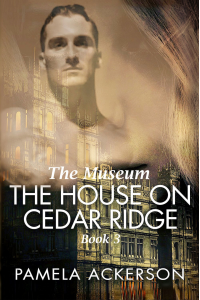 The House on Cedar Ridge:: The Museum (Cedar Ridge Hills Museum Series Book 3)
Genre: Paranormal Romance, Science Fiction
The House on Cedar Ridge:: The Museum (Cedar Ridge Hills Museum Series Book 3)
Genre: Paranormal Romance, Science Fiction
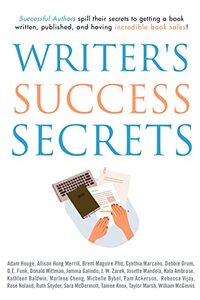 Writer's Success Secrets: Successful Authors spill their secrets to getting a book written, published, and having incredible book sales!
Genre: General Nonfiction
Writer's Success Secrets: Successful Authors spill their secrets to getting a book written, published, and having incredible book sales!
Genre: General Nonfiction
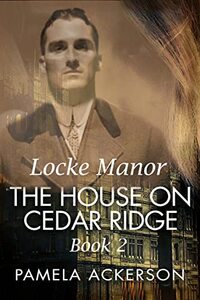 The House on Cedar Ridge: Locke Manor Book 2 (Cedar Ridge Hills Museum Series)
Genre: Paranormal Romance, Time Travel Romance
The House on Cedar Ridge: Locke Manor Book 2 (Cedar Ridge Hills Museum Series)
Genre: Paranormal Romance, Time Travel Romance
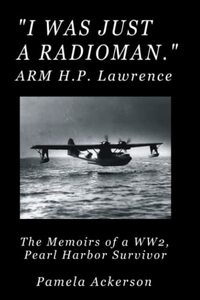 I Was Just a Radioman: The Memoirs of a Pearl Harbor Survivor - Large Print
Genre: Biographies & Memoirs
I Was Just a Radioman: The Memoirs of a Pearl Harbor Survivor - Large Print
Genre: Biographies & Memoirs
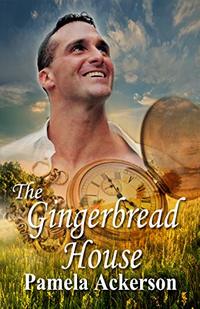 The Gingerbread House
Genre: Crime Fiction, Historical Mystery, Mystery, Supernatural Suspense, Contemporary Romance, Historical Romance, New Adult Romance, Time Travel Romance, Historical Fiction, Women's Fiction, Science Fiction, Teen & Young Adult
The Gingerbread House
Genre: Crime Fiction, Historical Mystery, Mystery, Supernatural Suspense, Contemporary Romance, Historical Romance, New Adult Romance, Time Travel Romance, Historical Fiction, Women's Fiction, Science Fiction, Teen & Young Adult
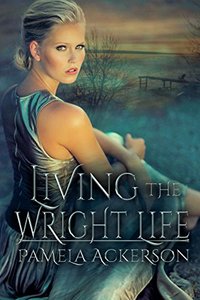 Living the Wright Life
Genre: Mystery, Contemporary Romance, New Adult Romance, Romance, Women's Fiction
Living the Wright Life
Genre: Mystery, Contemporary Romance, New Adult Romance, Romance, Women's Fiction
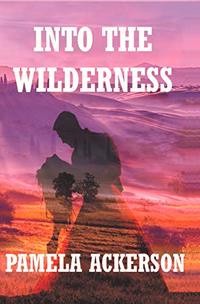 Into the Wilderness (The Wilderness Series Book 2)
Genre: Suspense, Action & Adventure, Historical Romance, Romantic Suspense, Romance, Time Travel Romance, Historical Fiction, Women's Fiction
Into the Wilderness (The Wilderness Series Book 2)
Genre: Suspense, Action & Adventure, Historical Romance, Romantic Suspense, Romance, Time Travel Romance, Historical Fiction, Women's Fiction
 El Perrito Largo y el Perrito Pequeno: Una Historia de la Abuelita Pantalones (La Serie del Perrito Largo y Pequeno nº 1) (Spanish Edition)
Genre: Children's
El Perrito Largo y el Perrito Pequeno: Una Historia de la Abuelita Pantalones (La Serie del Perrito Largo y Pequeno nº 1) (Spanish Edition)
Genre: Children's

